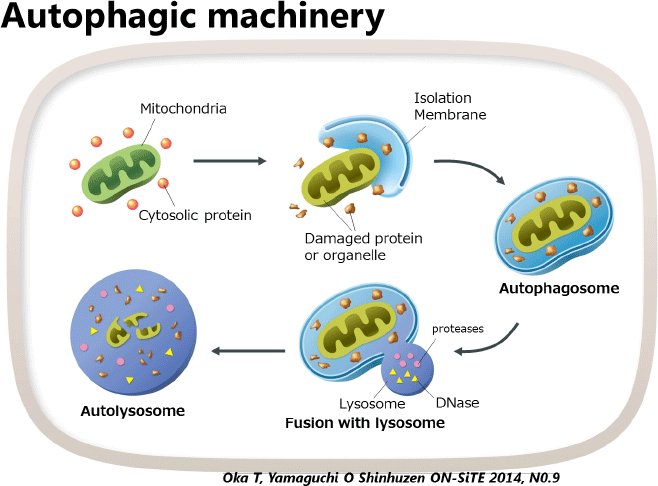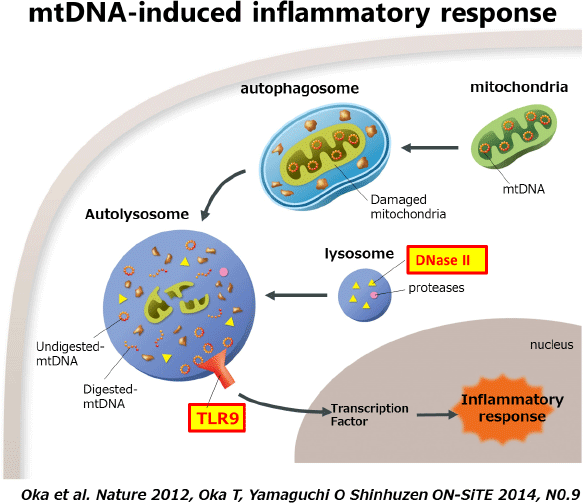Molecular Cardiology Group


Research interests
To investigate molecular mechanism involved in the progression of cardiac diseases, especially heart failure.
- The role of autophagy in cardiomyocytes
- Novel molecular mechanisms involved in mitochondria-specific autophagy
- The role of mitochondria dynamics; Fusion and Fission
- Inflammatory responses induced by mitochondrial DNA in cardiomyocytes
Current and future research directions
Autophagy is a cell survival mechanism that involves degradation of cytoplasmic proteins and organelles such as mitochondria. We have previously reported that autophagy plays a protective role against hemodynamic stress induced by pressure overload or age-related cardiac dysfunction. (Nature Medicine 2007, Autophagy 2010) Furthermore, we showed that mitochondrial DNA that escapes from autophagy leads to Toll-like receptor (TLR) 9-mediated inflammatory responses in cardiomyocytes and induces myocarditis and heart failure. (Nature 2012) The quality control of mitochondria is essential for the maintenance of normal cellular functions, because damaged mitochondria can generate reactive oxygen species (ROS) as byproducts. Accumulation of damaged mitochondria is characteristic of heart failure. We recently find a novel molecule, BCL2L13, which induces mitochondrial fission and mitochondria-specific autophagy. (Nature Communications 2015) We are now investigating whether induction of autophagy has a protective effect during progression of heart failure, and whether mitochondrial DNA-TLR9 axis is a novel target for sterile inflammation and heart failure.

